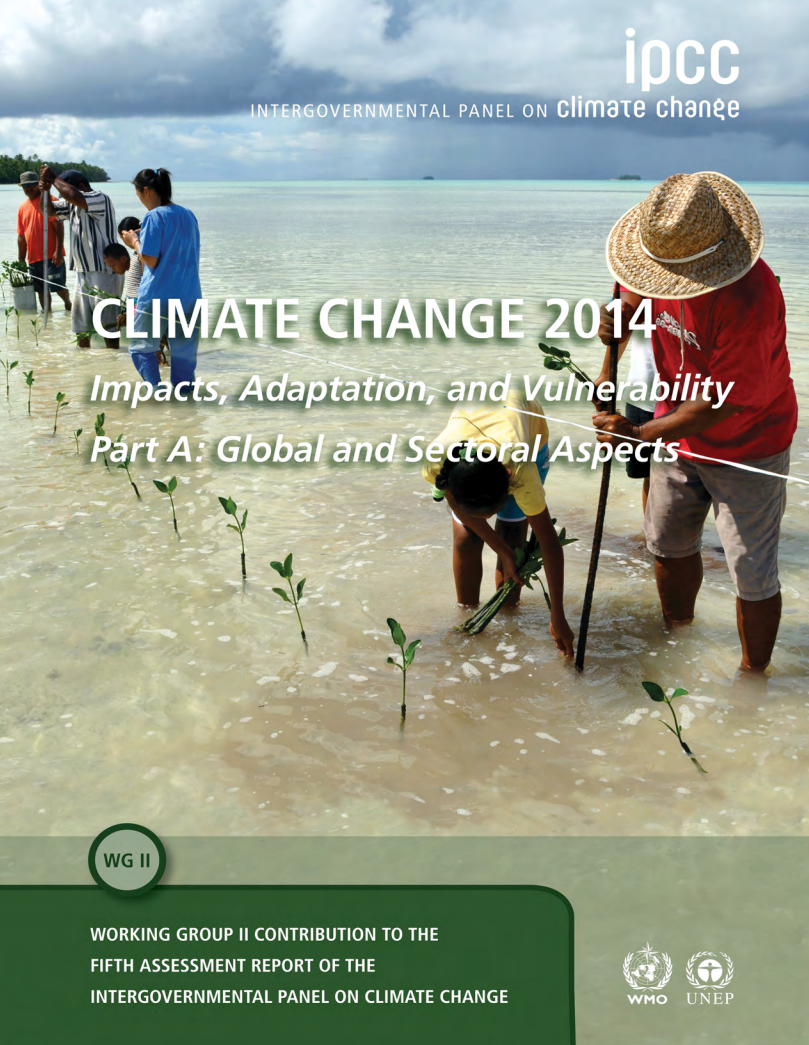Location
CH 1211 Geneva 2, Switzerland
The Intergovernmental Panel on Climate Change (IPCC) is the leading international body for the assessment of climate change. It was established by the United Nations Environment Programme (UNEP) and the World Meteorological Organization (WMO) in 1988 to provide the world with a clear scientific view on the current state of knowledge in climate change and its potential environmental and socio-economic impacts. In the same year, the UN General Assembly endorsed the action by WMO and UNEP in jointly establishing the IPCC.
The IPCC reviews and assesses the most recent scientific, technical and socio-economic information produced worldwide relevant to the understanding of climate change. It does not conduct any research nor does it monitor climate related data or parameters.
As an intergovernmental body, membership of the IPCC is open to all member countries of the United Nations (UN) and WMO. Currently 195 countries are Members of the IPCC. Governments participate in the review process and the plenary Sessions, where main decisions about the IPCC work programme are taken and reports are accepted, adopted and approved. The IPCC Bureau Members, including the Chair, are also elected during the plenary Sessions.
Thousands of scientists from all over the world contribute to the work of the IPCC. Review is an essential part of the IPCC process, to ensure an objective and complete assessment of current information. IPCC aims to reflect a range of views and expertise. The Secretariat coordinates all the IPCC work and liaises with Governments. It is established by WMO and UNEP and located at WMO headquarters in Geneva. The IPCC is administered in accordance to WMO and UN rules and procedures, including codes of conduct and ethical principles (as outlined in UN Ethics, WMO Ethics Function, Staff Regulations and 2012/07-Retaliation).
Because of its scientific and intergovernmental nature, the IPCC embodies a unique opportunity to provide rigorous and balanced scientific information to decision makers. By endorsing the IPCC reports, governments acknowledge the authority of their scientific content. The work of the organization is therefore policy-relevant and yet policy-neutral, never policy-prescriptive.
Members:
Resources
Displaying 6 - 9 of 9Climate Change 2014: Impacts, Adaptation, and Vulnerability
Climate change impacts, adaptation, and vulnerability span a vast range of topics.With the deepening of knowledge about climate change, we see connections in expanding and diverse areas, activities, and assets at risk. Early research focused on direct impacts of temperature and rainfall on humans, crops, and wild plants and animals. New evidence points to the importance of understanding not only these direct impacts but also potential indirect impacts, including impacts that can be transmitted around the world through trade, travel, and security.
2013 Revised Supplementary Methods and Good Practice Guidance Arising from the Kyoto Protocol
This document aims to provide supplementary methods and good practice guidance for estimating anthropogenic greenhouse gas emissions by sources and removals by sinks resulting from land use, land-use change and forestry (LULUCF) activities under Article 3, paragraphs 3 and 4, of the Kyoto Protocol for the second commitment period – 2003 – 2020. For the second commitment period, the activities included under Article 3.3 are Afforestation, Reforestation, and Deforestation since 1990, which remain mandatory.
Climate change and water: IPCC technical paper VI
This IPCC technical paper extensively and thoroughly examines the potential consequences of climate change on the world’s freshwater resources and the communities that depend on them. Its objective is to improve understanding of how water-related issues are linked to climate change and adaptation and mitigation responses. The methodology splits sections into observed and projected effects with error margins and a stress on uncertainty presented as necessary context.
Special report on land use, land use change and forestry: summary for policymakers [climate change]
Reviews the current understanding of the relationship between land use (especially forestry), carbon dioxide emissions and the Kyoto Protocol agreementsTopics cover: how the global carbon cycle operates, and how this relates to forestry activitiesaccounting rulescomparison of the usefulness of models and ground-based assessments of changes in carbon stocksshort term prospects for policy implementationimplications for sustainable development




